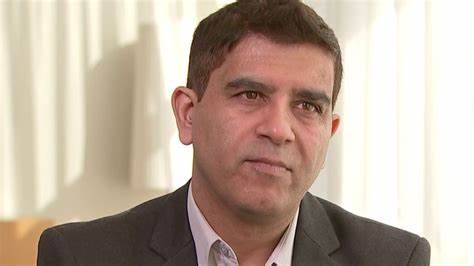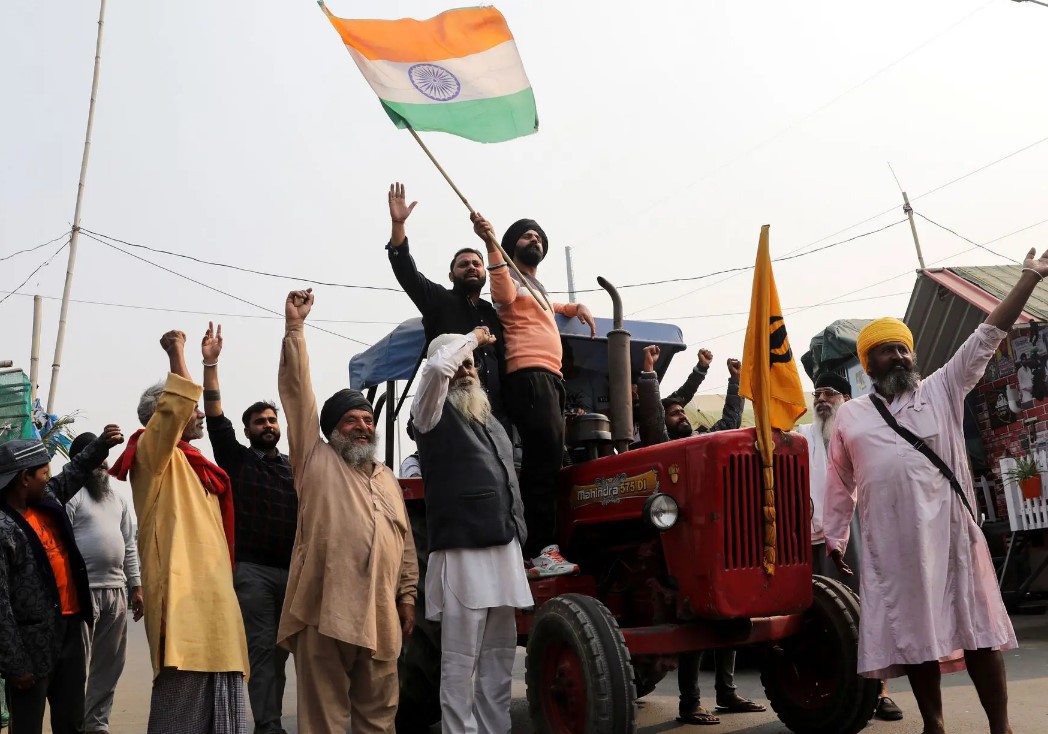When Indian PM Narendra Modi announced the repeal of three controversial farm laws after a year of protests, it followed after thousands of farmers had camped at Delhi's borders, since last November, and dozens dying from heat, cold and Covid.
They said that the laws will allow the entry of private players in farming and that will hurt their income. The announcement marks a major U-turn as the government had not taken any initiative to talk to farmers in recent months.
Farm unions are seeing this as a huge victory. But experts say the upcoming state elections in Punjab and Uttar Pradesh - both have a huge base of farmers - may have forced the decision. The announcement came on a day Sikhs - the dominant community in Punjab - celebrated the birth anniversary of Guru Nanak, the founder of Sikhism.
PM Modi said the farm laws were meant to strengthen the small farmers. "But despite several attempts to explain the benefits to the farmers, we have failed. On the occasion of Guru Purab, the government has decided to repeal the three farm laws," he added.
One of the biggest changes sees farmers being allowed to sell their produce at a market price directly to private players - agricultural businesses, supermarket chains and online grocers. Most Indian farmers currently sell the majority of their produce at government-controlled wholesale markets or mandis at assured floor prices.
The laws allowed private buyers to hoard food like rice, wheat and pulses for future sales, which only government-authorised agents could do earlier. The reforms gives farmers the option of selling outside of the so-called "mandi system", although protesters said the laws weakens the farmers and allow private players to dictate prices and control their fate - with India's stringent laws around the sale of agricultural produce and high subsidies protecting farmers from market forces for decades.
Farmers in Punjab and Haryana celebrated the news by raising flags of victory and distributed sweets, but said the fight is not over.
But the government argued that it was time to make farming profitable for even small farmers and the new laws were going to achieve that.
Farmers in Punjab and Haryana are celebrating the news, raising flags of victory and distributing sweets. But they say the fight is not over.
"We have no faith in a verbal promise. Unless we see it in writing that the laws have actually been repealed, we will stay here," Raj Singh Chaudhary, a 99-year-old protester, told the BBC's Salman Ravi.
Mr Chaudhary is among hundreds of farmers who have been striking at the Delhi-Ghazipur border for a year.
His view was echoed by Rakesh Tikait, a prominent farmer leader who said they would call off the protest only after the laws were repealed in the winter session of parliament.
Another farmer leader said they needed additional promises from the government around assured prices for their crops to end their protest.
The announcement has stunned political observers as well as those who both support and oppose the laws - many tweeted saying it was a huge victory for the farmers and a "major climbdown" for Mr Modi.
But some farm leaders and economists who saw merit in the laws have expressed disappointment over their repeal. Anil Ghanwat, head of a farmers' union in western India, said it was an "unfortunate" decision driven by political considerations.
Opposition parties welcomed the decision, with Congress party leader Rahul Gandhi calling it "a win against injustice". And West Bengal Chief Minister Mamata Banerjee, took to social media to praise farmers and congratulate them.
BJP members said the decision to repeal the laws had nothing to do with the polls and the decision was taken to end the protest. They did not say if there were plans to bring back the laws in another form later.












